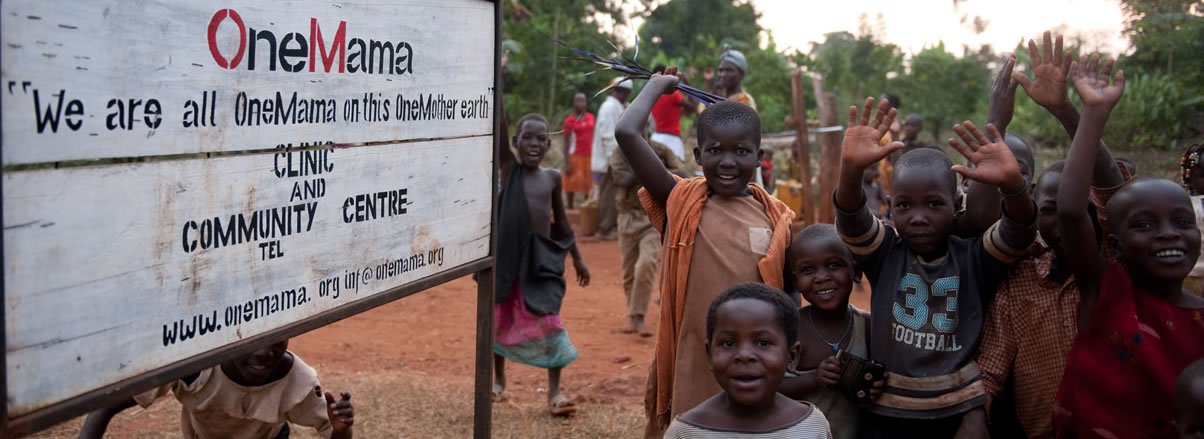OneMama's Vision
People will work together in thriving, sustainable communities around the world, creating a balanced global collective.
OneMama's Mission
To bring health and prosperity to people all over the world by empowering women as caregivers, mothers, businesswomen and agents of change for their rural communities.
OneMama's Strategy
To empower women, families, and communities to be successful through sustainable health, education, and economics.
By creating a pilot program in Uganda that can be replicated in all rural, poor communities around the globe; OneMama ensures that midwives, mothers, fathers and children receiving assistance also receive the opportunity for education in pre/postnatal care, family planning, and financial stability. The recipients, whether they are mothers, fathers, midwives, or volunteers must contribute back to OneMama, creating a unified support system.
OneMama's History
Founded in 2007 by Siobhan Neilland, OneMama puts direct focus on women because it is the woman, traditional midwife, mother and the men who love them who bring these communities to life. This organization is committed to helping families in poor communities improve their lives through family planning, education, and sustainable economics.
Mama Jamira's Story
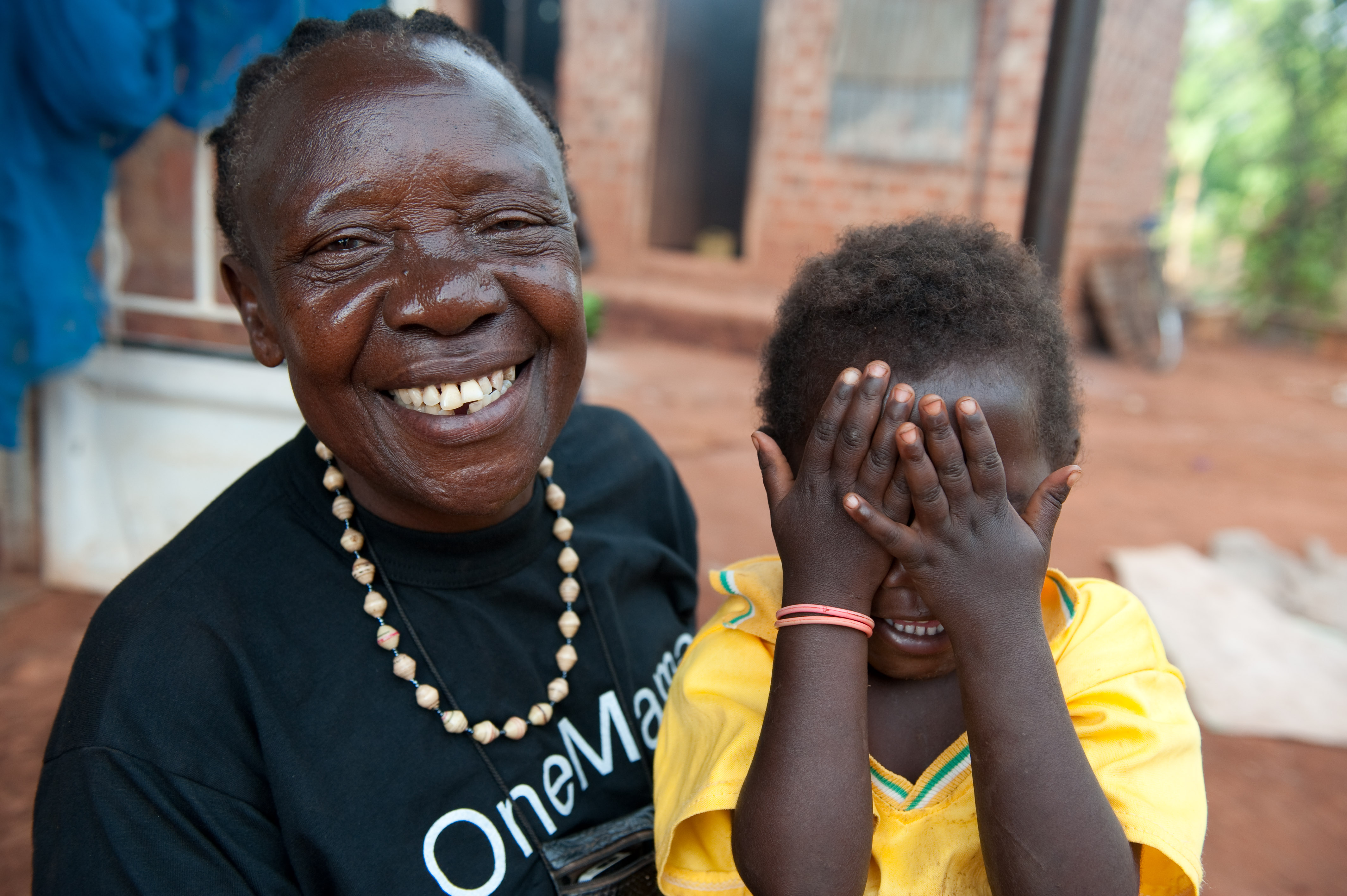
Jamira is a traditional birth attendant (TBA), otherwise known as a traditional midwife in Uganda. Since 1982, she has been working out of her hut in order to provide care for mothers giving birth. She has had training for a midwife certification with a special focus on HIV prevention. She is also inherently gifted in her practice, using specialized herbal medicine for the women and babies who are under her care, and therefore has much respect throughout her community and other neighboring communities. Yet, Jamira does not have any medical supplies, funding, governmental support, or even beds for her patients. The conditions she works in are unfathomable by most.
Jamira represents many traditional midwives in Uganda, and hundreds of thousands more around the world. Even with her extensive knowledge and understanding of traditional midwifery, she struggles against strong odds: HIV, Malaria, extremely poor conditions, and little help. She is one of many courageous women in her day-to-day efforts to help women and infants who may otherwise succumb to sickness or death during childbirth because they lack access to family planning, prenatal and postnatal care, and financial stability.
Traditional midwives are the heart of rural communities in Uganda. A majority of its women have their babies through a traditional midwife. Women in late term pregnancy travel by foot for miles in order to give birth with a traditional midwife they trust. At times, a single midwife nurtures the mothers and infants of an entire community - thus, quite literally being one mother for all: OneMama.
OneMama ties Uganda's communities together through sustainable health, family, and financial education in order for its people to overcome poverty and thrive. By specifically supporting the traditional midwives at the center of these communities, OneMama empowers women, raises awareness, and makes positive change. OneMama is the nurturer, the protector, and the source of life for those in need.
We are all OneMama living on OneMother Earth.
A Day in the Life of a Traditional Midwife
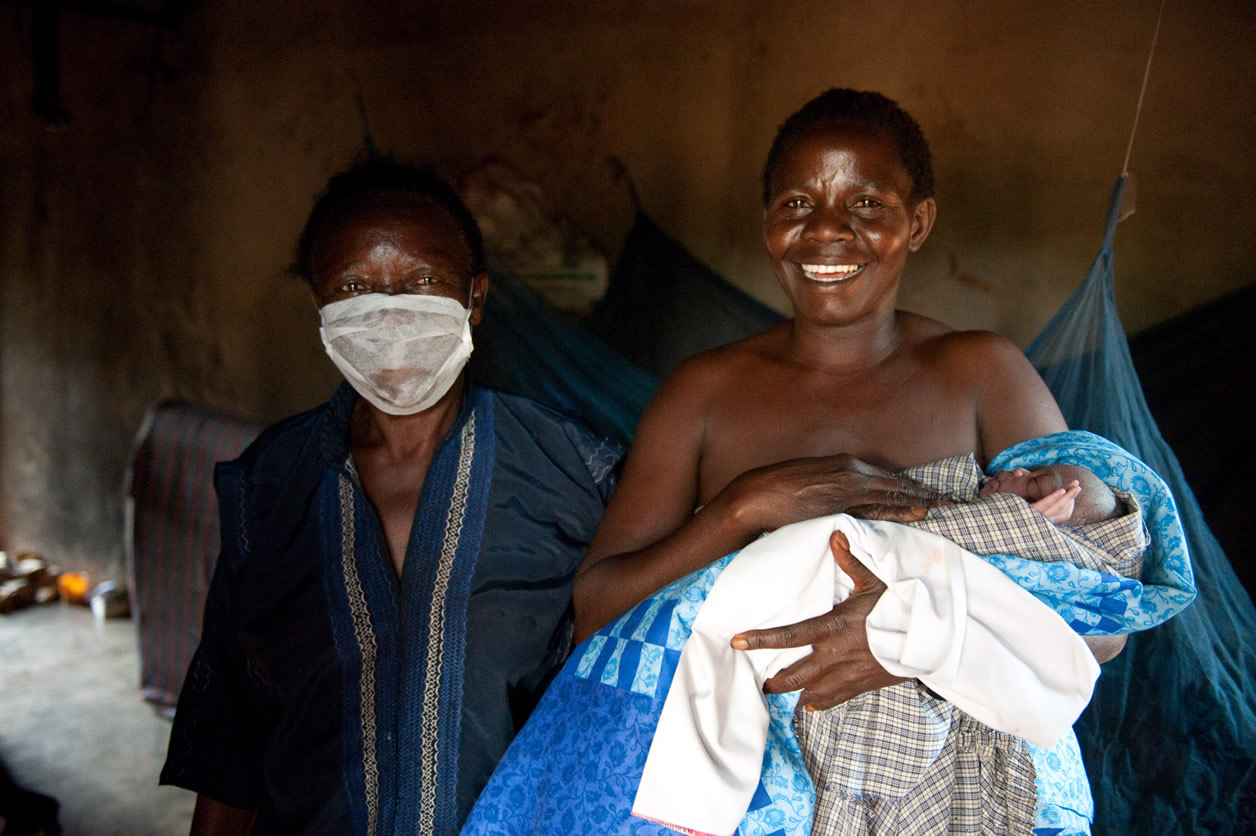
The majority of local rural women in Uganda have their babies with local traditional midwives. These traditional midwives are at the center of the birthing process in their respective communities. A Ugandan midwife like Jamira may have anywhere from 1-5 women come to her aid each day. Generally, midwives ask their clientele to bring either a birth kit or about $3-$5 to cover the kit's cost. The majority of clients do not have either of these for the midwife (the average Ugandan makes only $1-$2 a day). Instead, women often come hungry and in need of nourishment in order to have the energy to give birth properly. Midwives frequently feed clients from their own food supply, sacrificing personal sustenance. With such little income, many women have nothing but gratitude to give to their midwives.
Traditional midwives use their own supplies (gloves, antiseptic cleaners, scissors, traditional herbs, medicine, bandages, testing equipment) when available. Yet, because many midwives do not receive payment for long periods of time, supplies are scarce. Midwives must persevere without supplies for the sake of their clients and their lives. To proceed without the necessary resources can be very precarious for the woman, infant, and midwife.
With no provisions, women and infants are at risk for infection. And, traditional midwives are susceptible to any disease (such as Malaria or HIV) their clients may have. Lacking proper testing equipment, these midwives must treat every woman and infant with extreme caution because so many of Uganda's people are infected with HIV or Malaria.
Traditional midwives help women and infants overcome great adversity, and in doing so risk their own lives. Imagine working amidst such danger. Imagine living without the resources available to many of us today.
Do your part to support these traditional midwives, women, children, infants, and the men who love them. Support OneMama's mission to bring prosperity and health to people all over the world by empowering women as caregivers, mothers, businesswomen, and agents of change for their rural communities.
Give or Get Involved
A Day in the Life of a Ugandan Woman
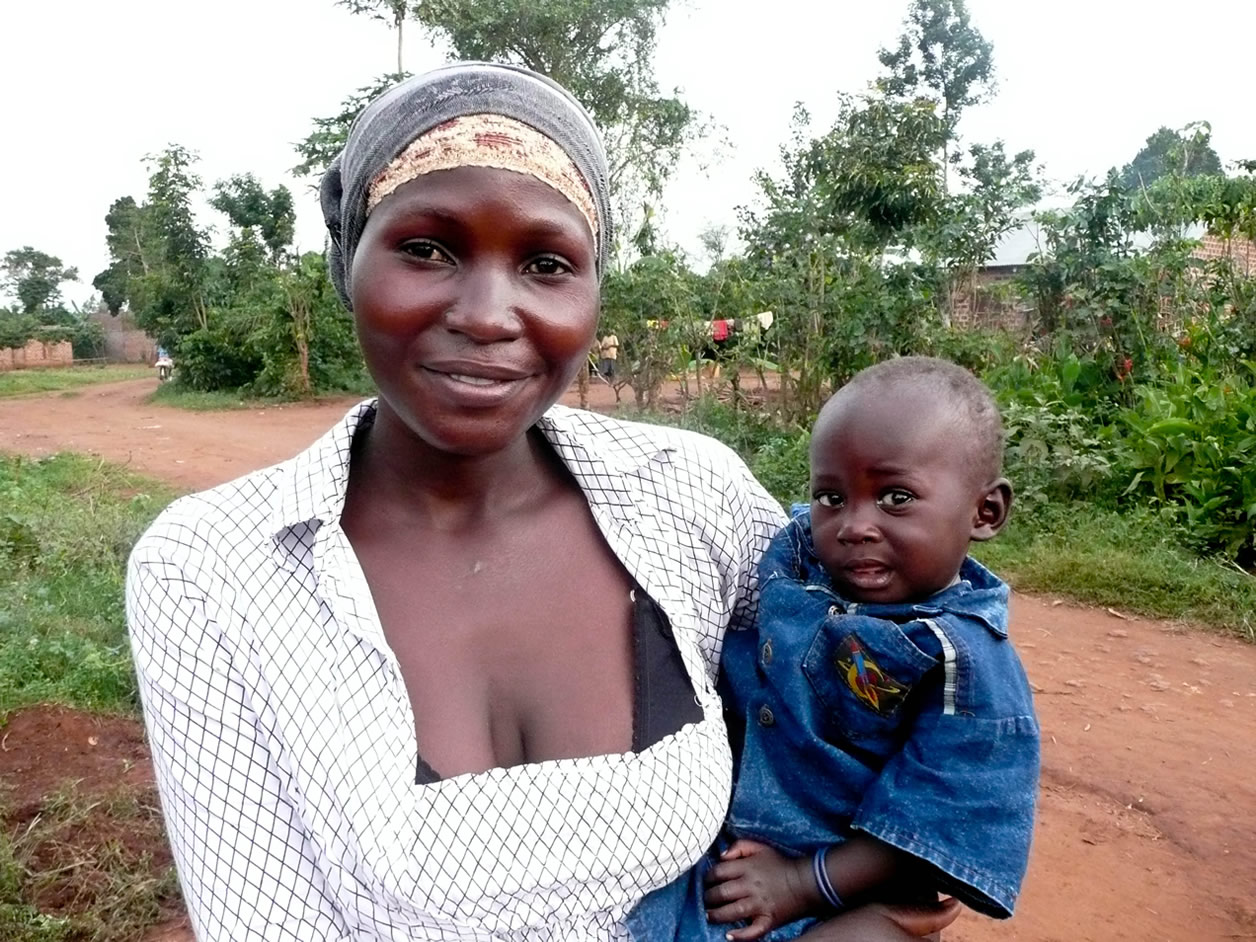
Ugandan women work longer hours than men, have limited access to resources, and exercise little or have no control over what they produce. The result is that women are among the worst affected by poverty. Additionally, women bear the greater burden of caring for the sick and the children orphaned by HIV/AIDS. Their daily responsibilities leave them overstretched, and their ability to assure that food is on the table becomes severely compromised.
Women and Pregnancy in Uganda
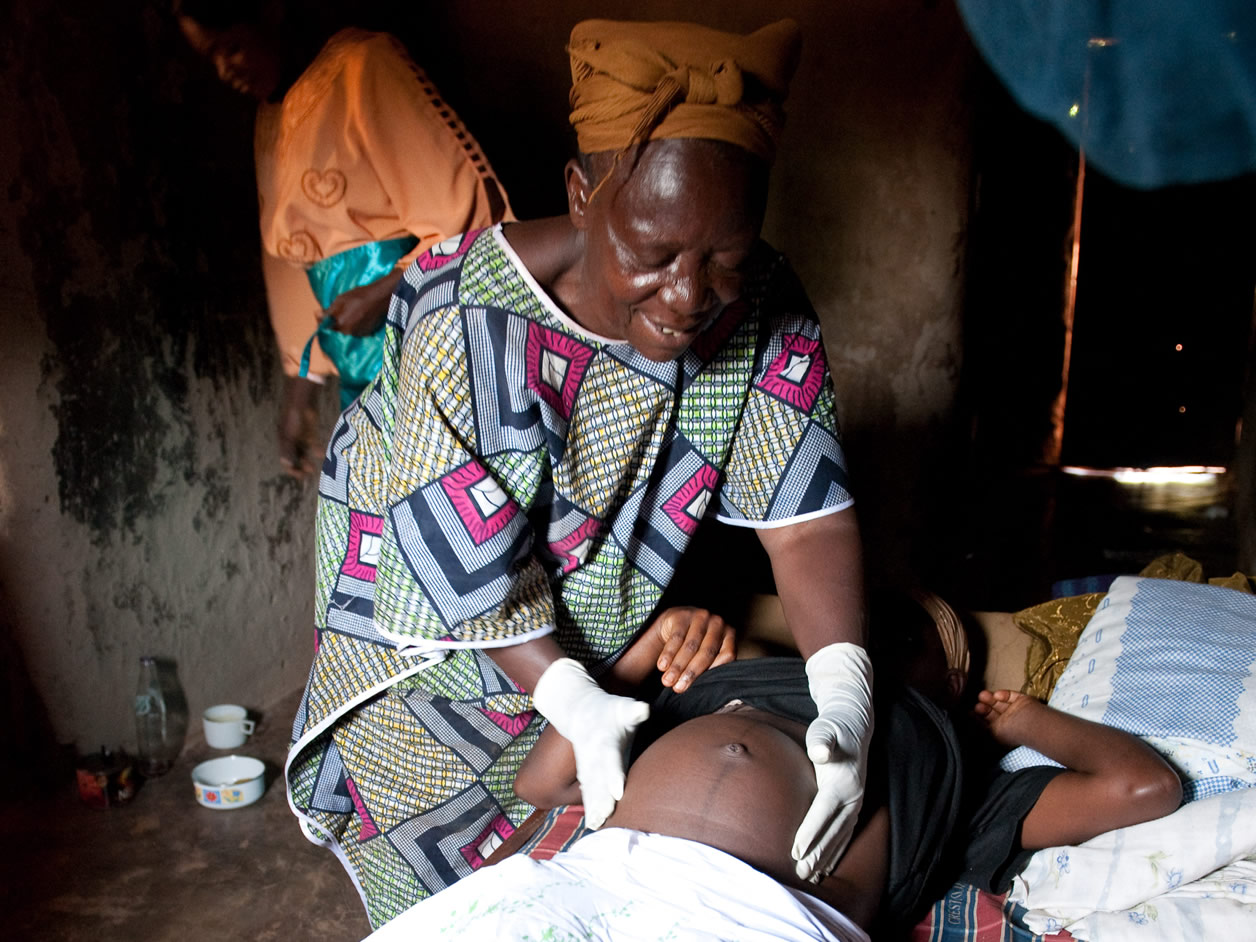
A pregnant Ugandan woman is not unlike any other soon-to-be mother. She wants the best care for herself and her infant as she goes through the birth process. Most women in rural communities have their babies with a traditional midwife rather than a government hospital in Uganda.
Women at Home in Uganda
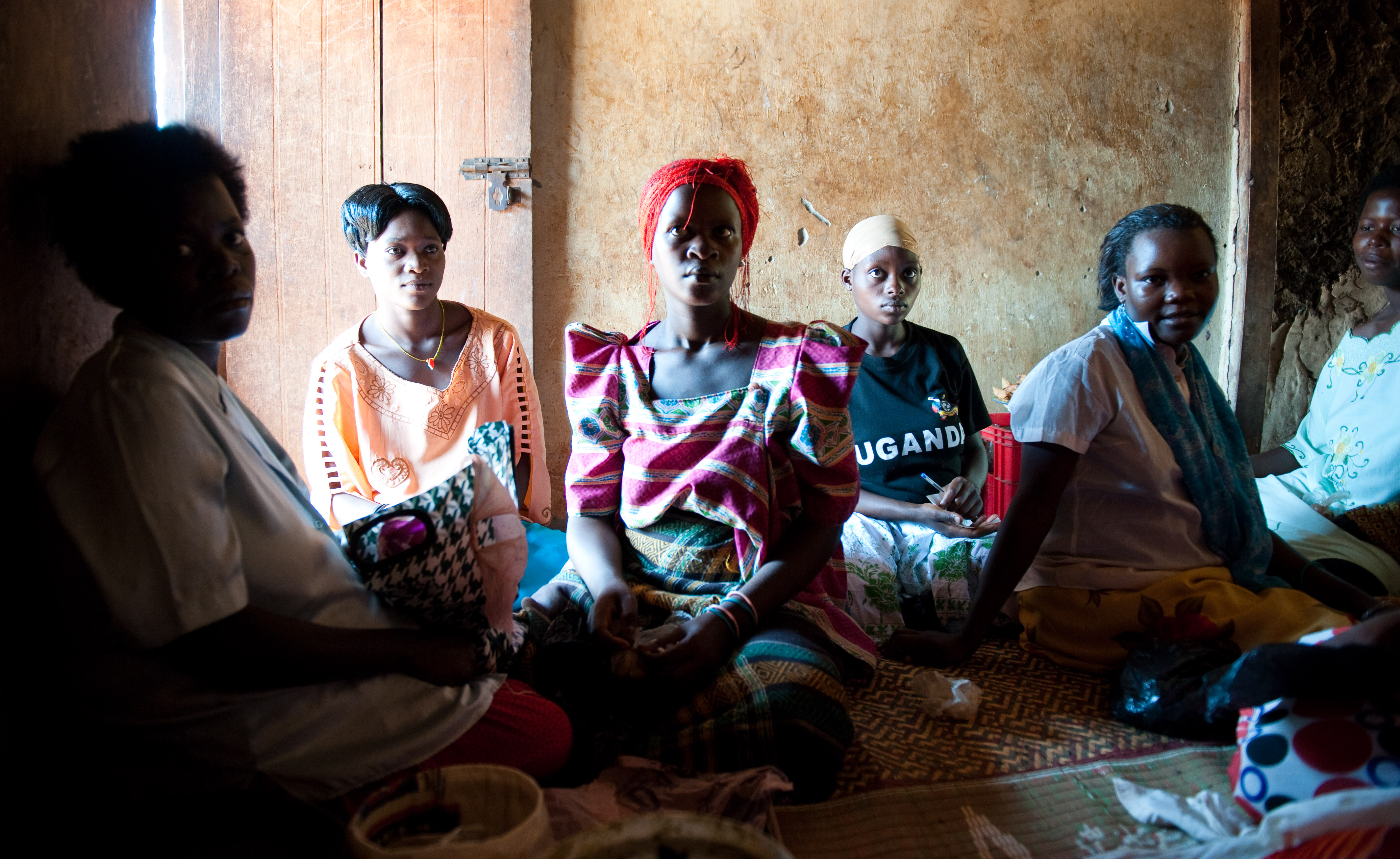
Most Ugandan women live in thatch roofed huts with no windows, toilets, electricity or running water. They must walk long distances to get water from either the Nile River or local wells. Living off the foods they sow and seasonal roots and vegetables, women only have one or two meals a day for their entire family. When food is scarce, women go without eating in order to feed their children.
Women and HIV/AIDS
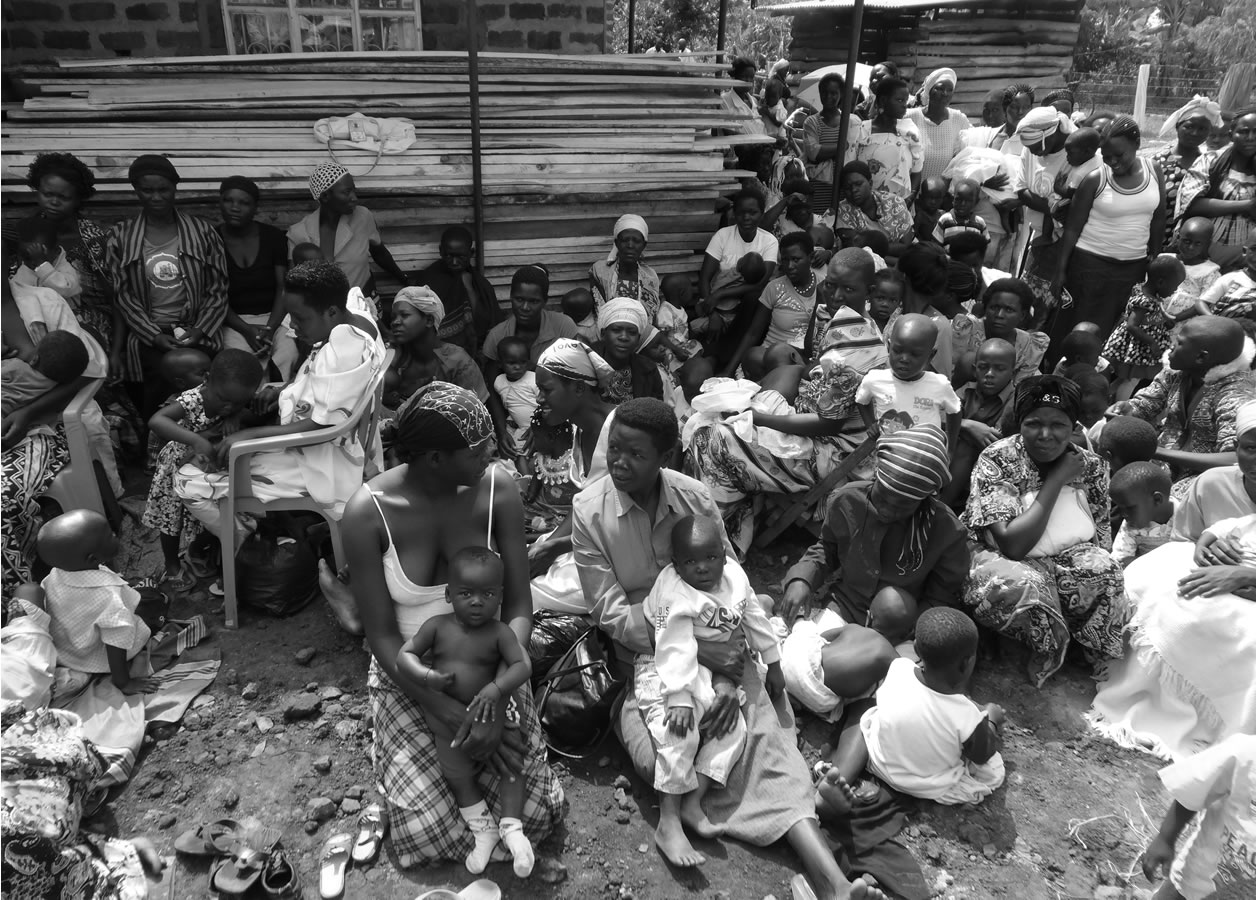
In Uganda, about two million children -almost 20 per cent of all children- are orphans who have lost one or both parents to HIV/AIDS. While Uganda is at the forefront in the fight against HIV/AIDS, the threat of the epidemic remains acute throughout the country. The many families that care for the ill and children orphaned by the disease are losing huge amounts of productive time and resources. The burden falls mainly on women.
The OneMama Solution
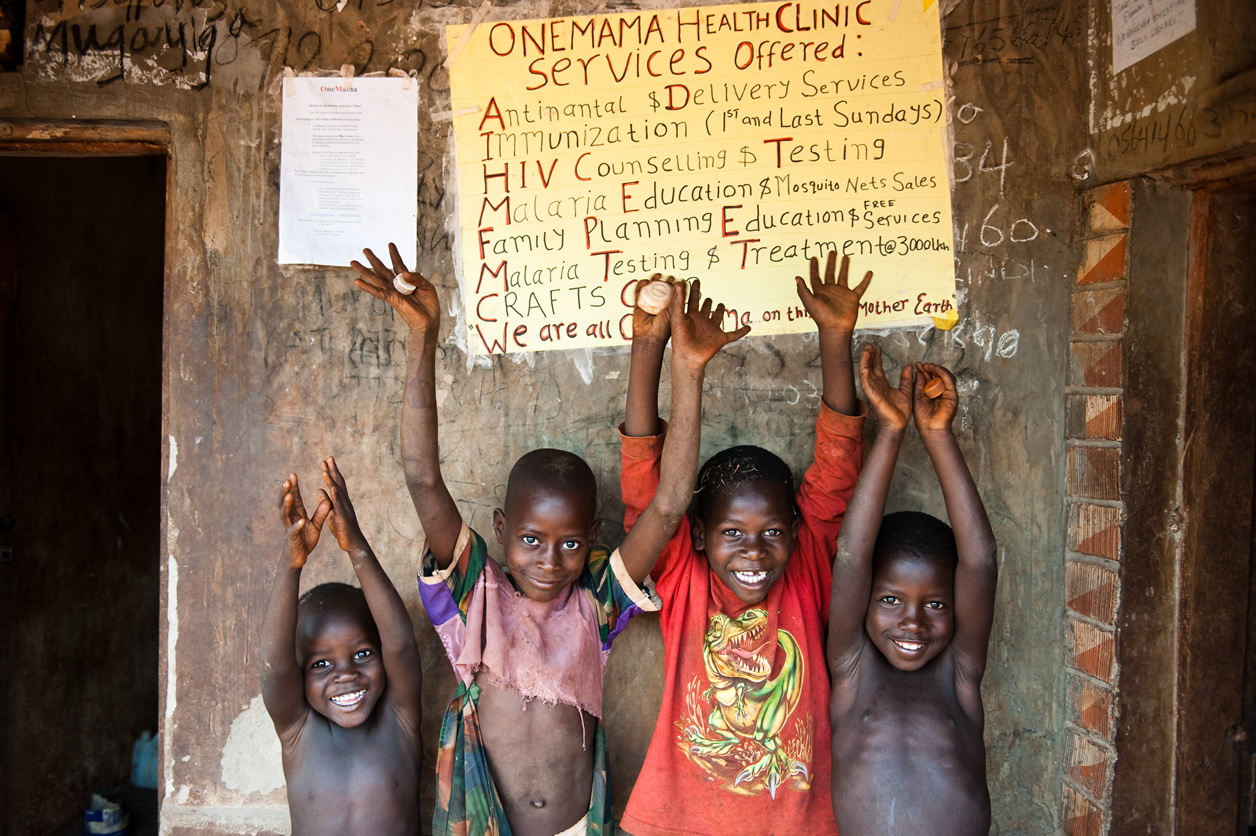
OneMama holistically supports Uganda's women in order to best solve the issues that plague them. From online donations to on-site volunteering, OneMamaprovides individualized ways for you to become part of a positive, sustainable effort in improving mothers' lives.
What we can do - Give or Get Involved
Ugandan Women at Work
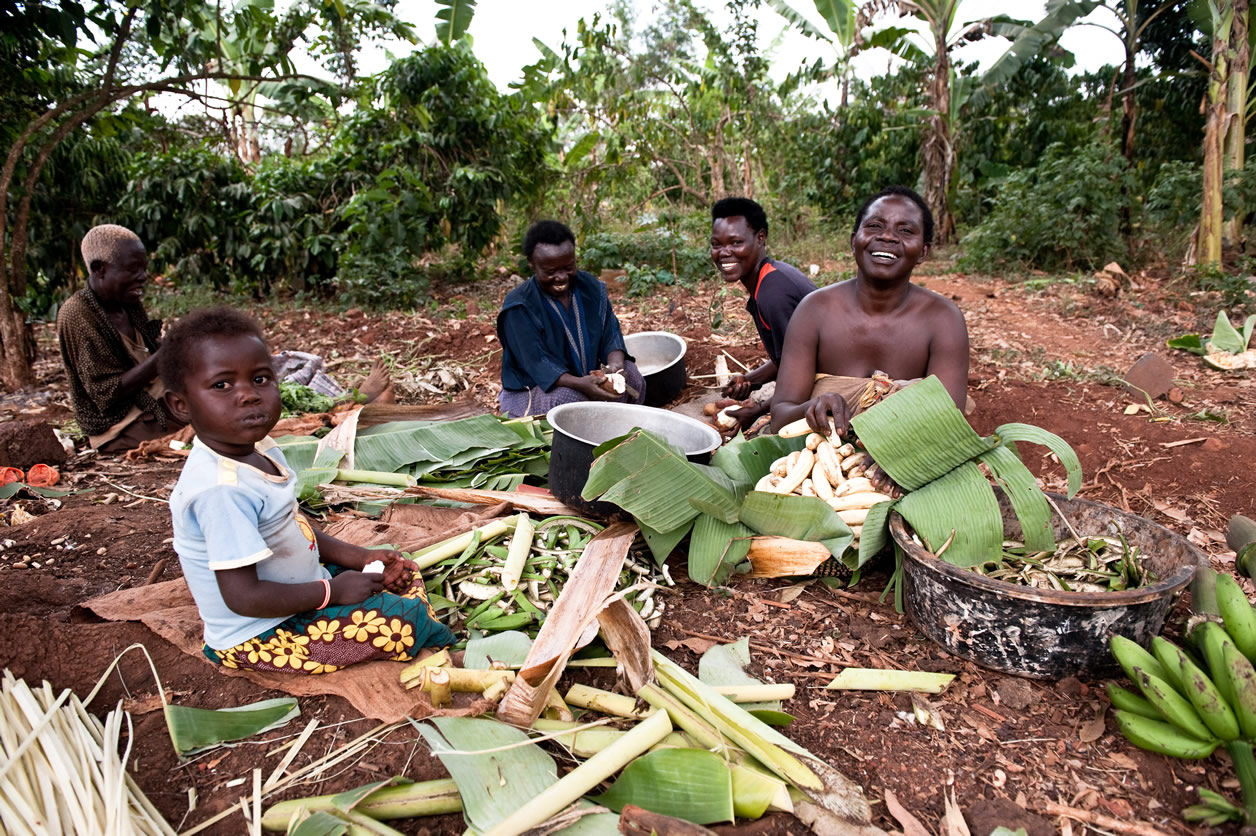
Agriculture is the main occupation of women in Uganda. Nationwide, 72% of all employed women and 90% of all rural women work in agriculture. Only 53% of rural men do so.
Women undertake sowing, harvesting, head-loading of produce, crop-drying, and many other tasks. Women do about 85% of the planting, 85% of the weeding, 55% of land preparation and 98% of all food processing. However, decisions to market are usually made by men (70%). In rural areas, women's workloads considerably exceed those of men.
Traditionally, men are responsible for cash crops, but women tend to be involved at all stages, with men becoming more active close to market time. Women and children tend to be delegated the farm tasks that are tedious and time consuming. Women not only work rigorously hard for long hours, they also must care for their children who often work alongside them.
Source: IFAD http://www.ruralpovertyportal.org/english/regions/africa/uga/index.htm
The Obstacles
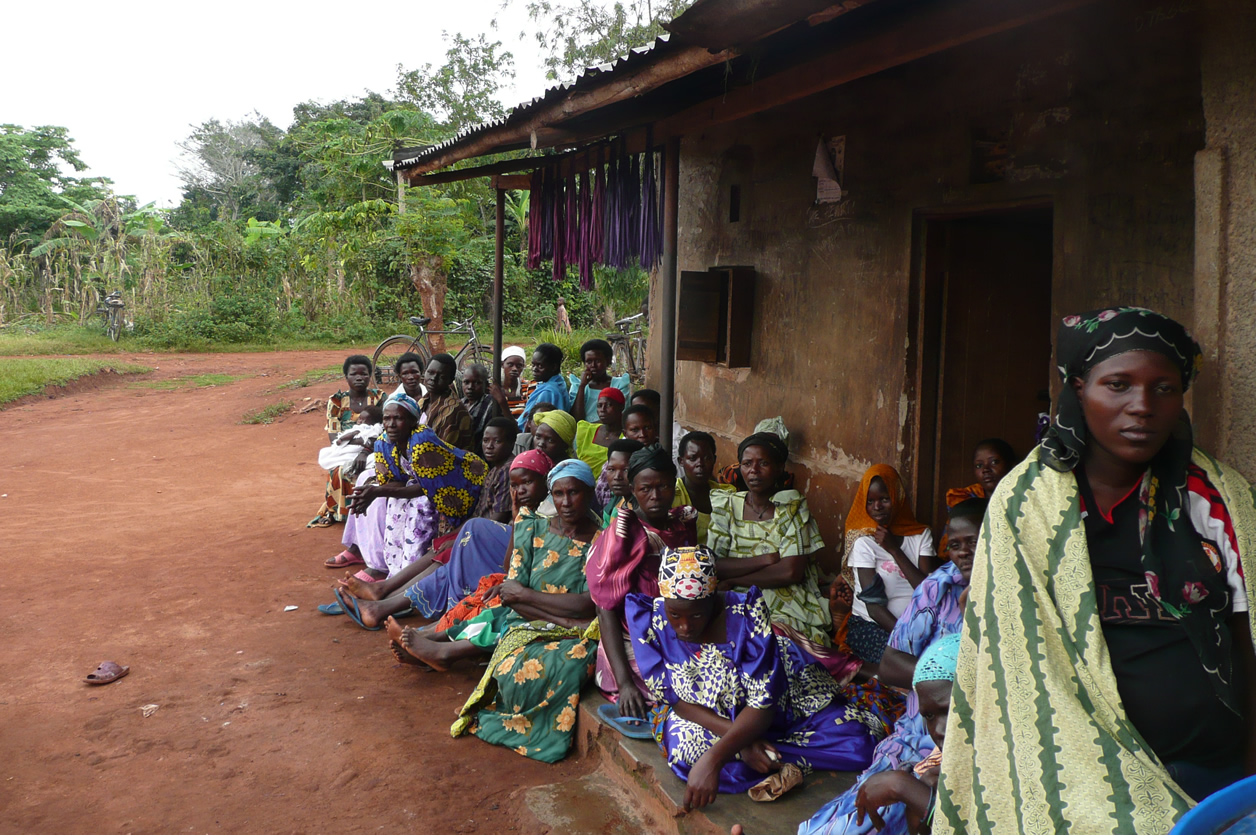
Uganda's women endure an enormous amount of strife. Malaria, the biggest infectious disease worldwide, causes most of their miscarriages and maternal health problems. It is also the number one killer of the country's children under the age of 5. HIV is another devastatingly widespread disease in Uganda, killing thousands of women each year. Due to AIDS, a Ugandan woman's life expectancy is only around 50 years.
Although a growing number of government and nonprofit hospitals offer treatment and prevention methods for these diseases, there must be more involvement in Uganda's society and culture in order to create a comprehensive solution to this endemic problem.
In this complex situation, there is a multitude of reasons behind the low success rate of hospitals in Uganda. Many hospitals are too far away. Women also feel more comfortable with a midwife who is an integral part of their community. Ironically, hospitals represent risk for many Ugandan women. Some hospitals will go 3-6 months with no medicine, others are corrupt- stories circulate in communities about women's babies being stolen. Women are most comfortable with the midwives in their communities, receiving traditional treatment with herbal medicines.
Ultimately, there is one reason for this that everyone throughout the world understands. It is the prevalent human need for security. No matter the origin or community, a pregnant woman wishes to feel safe during the birth process. For a pregnant woman in a third world country dependent on cultural values steeped in history, modern medicine can be intrusive and precarious. OneMama understands and respects cultural relativity such as this.
If modern medicine and methodology is not the perfect solution for Uganda's problems, what is? As with everything in life, the best solution requires balance. OneMama's focus revolves around a balance among traditional, modern, and uniquely innovative solutions.
We Are All One Mother
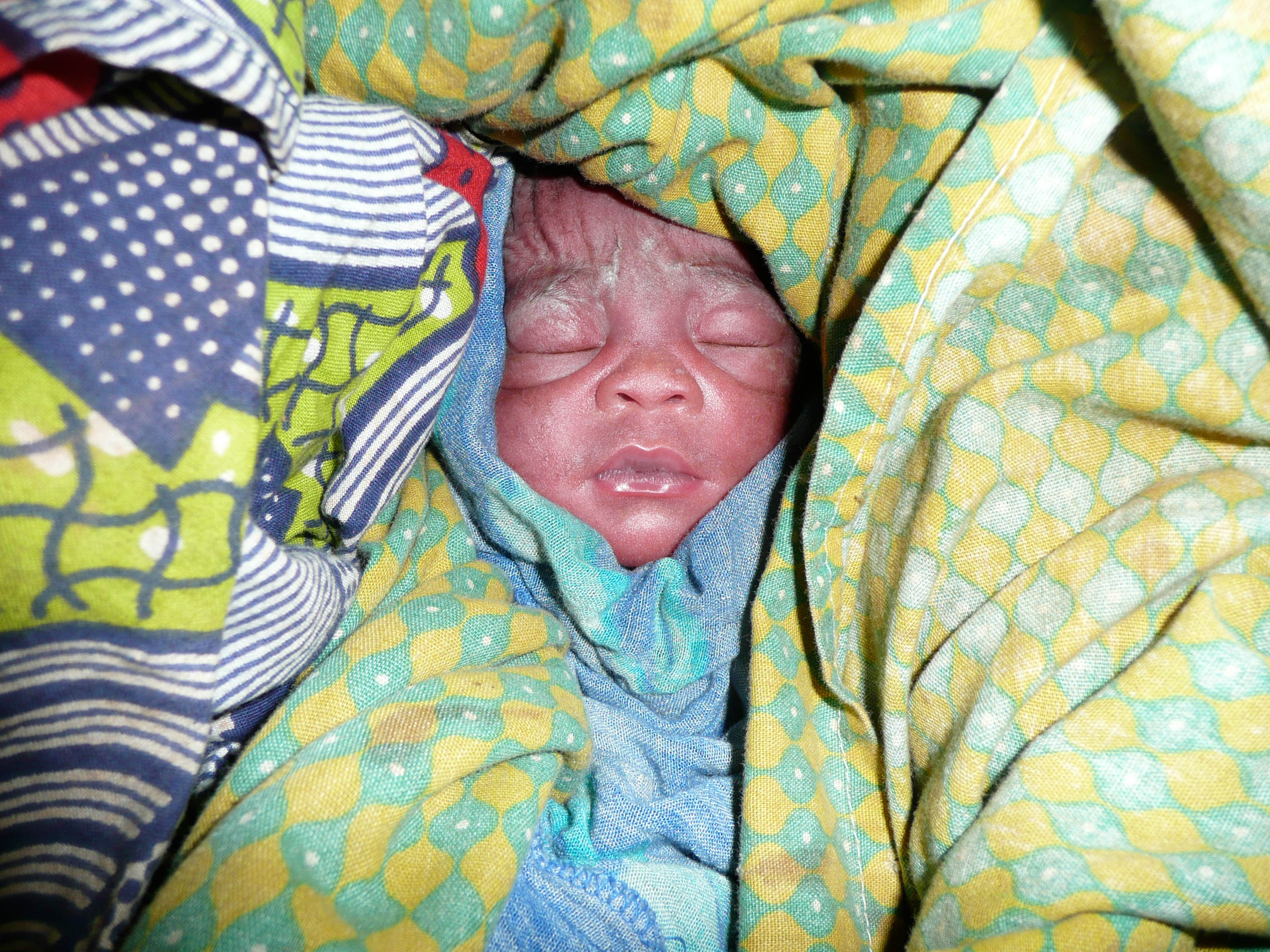
Midwives and mothers share a special bond throughout the birth process.
One midwife often cares for every mother and infant in a given community.
Trust unites midwives and mothers for generations.
Health care is holistic and often inexpensive or even free under a midwife's care.
Ease and accessibility play big roles for traditional midwives, who are often closer to women than a government hospital.
Remedies from a midwife ensure relief for mothers in pain, while government hospitals do not always have Western medicine or herbs for pain or infection.
The OneMama Team
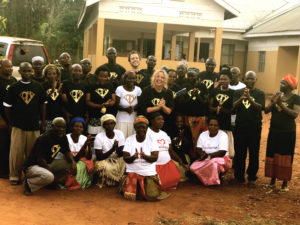
Siobhan Neilland
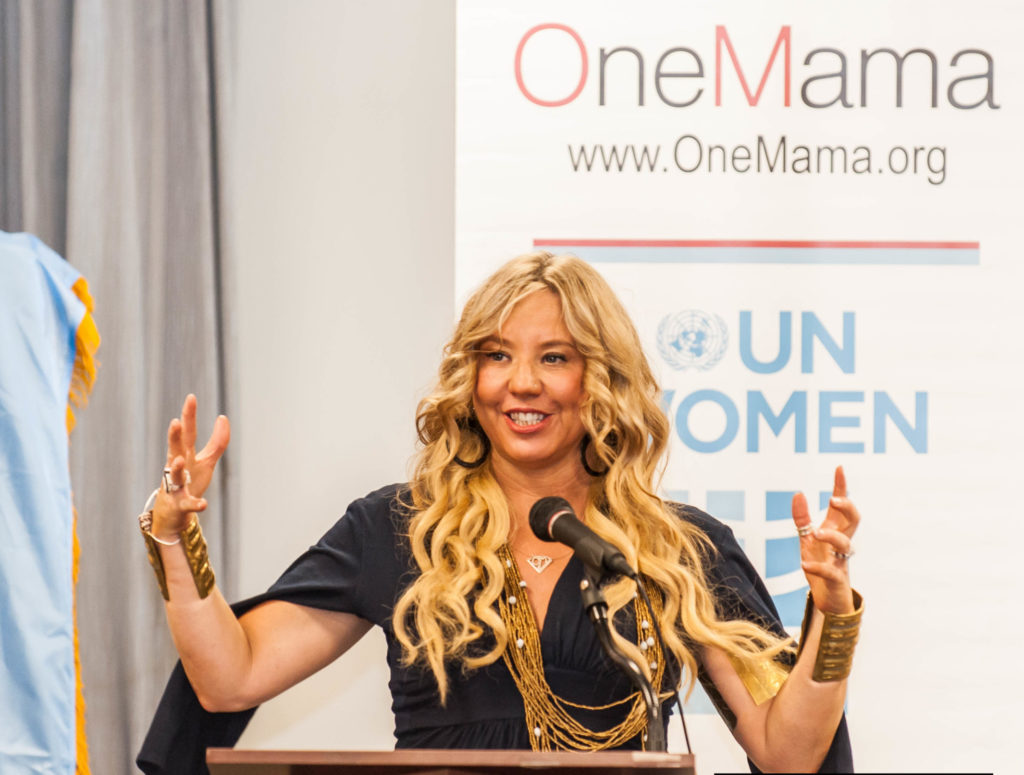
Siobhan Neilland, founder of OneMama, represents the heart of this organization. Passionate about making a difference in the world, Siobhan created OneMama to show those in need that they are loved and matter in this world.
Inspired by a Ugandan midwife, Mama Jamira, Siobhan found her calling helping people in desperate conditions empower themselves to create change. As she worked to help Mama Jamira's community, her vision blossomed into creating an organization that encompassed no limits, servicing impoverished communities worldwide. As a successful entrepreneur, Siobhan has taken her keen business sense and transmuted OneMama into a model that will create self- sustainability in each community it supports.
No stranger to poverty and hardship, Siobhan uses her own losses to inspire change and teach the global community how to overcome obstacles to achieve a fulfilling life. “Fighting for my Joy”, is Siobhan’s lifelong motto.
I want to make this a revolutionary social change. We can all find that little inscription in our heart to show that we can make a difference in the world. -Siobhan Neilland
Abbey Jaye Hunt
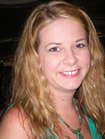
Abbey came to us as a humble freelance web designer and print designer, becoming responsible for eMarketing, eCommerce, and our forever growing websites and catalogs. Abbey soon became the backbone for our branding, marketing, and making us look cool! She creates a symbol of meaning and understanding to the Ugandan men and women of the OneMama community. Abbey is the mother to two young girls - plus three pug-children - and when she's not creatively inspiring their lives, she aspires to help OneMama build a brand that all people can recognize and feel good supporting.
Jessica Buchleitner
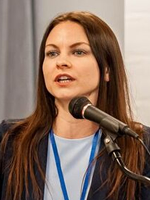
Jessica's journey to OneMama began 8 years ago when she interviewed founder Siobhan Neilland for the anthology series "50 Women" about her cult/commune upbringing and journey to building the OneMama clinic.
While serving on United Nations ECOSOC consultative NGO Women's Intercultural Network's Board of Directors, Jessica brought Siobhan and OneMama to the policy table as a global partner during the implementation of the United Nations Sustainable Development Goals.
With OneMama's new association to United Nations DPI-NGO, Jessica's role is to drive strategic focus and direction with it's programs and activities to ensure successful implementation of the Sustainable Development Goals. OneMama offers the international community and the United Nations unique insight into rural Uganda - its unique traditions, mirco economies and ways of life. After a decade of building trust through local midwife Mama Jamira, the NGO provides the United Nations solutions to funding impoverished communities and ways to address critical maternal health issues. Jessica ensures all activities are reported back to policymakers and diplomats at the United Nations and maintains relations with government, NGO, and other stakeholders in the international community.
Mama Jamira

Jeremiah Mulamba
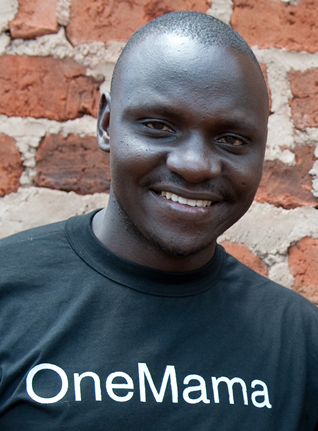
Jessica


